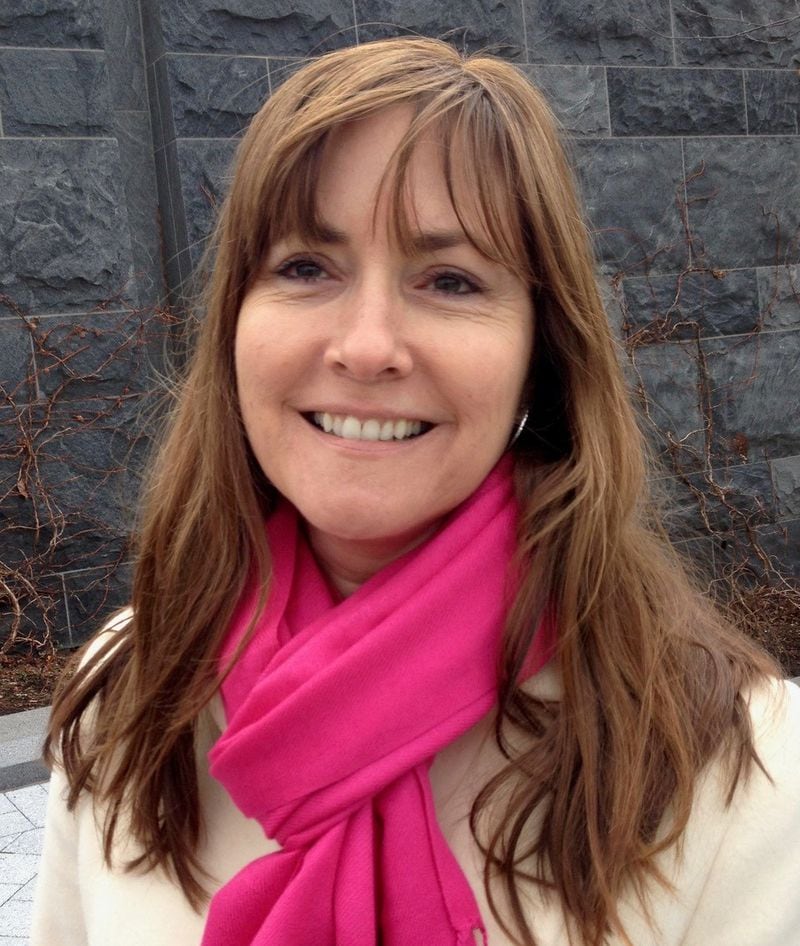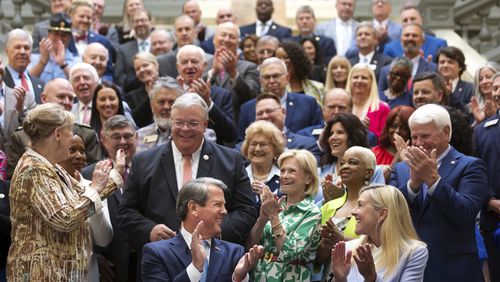To say that politicians, not voters, have an excessive amount of control in Georgia is not exaggerating. This is especially true when it comes to reproductive freedom.
Two years ago, the door slammed on abortion access in Georgia. When Roe v. Wade was overturned in 2022, Georgia’s lawmakers promptly handed down one of the harshest restrictions to access in the nation: a ban on abortions after just six weeks of pregnancy — without a single vote from Georgians.
When Roe was overturned, the new mandate was “let the states decide.” In most states, that meant “let the people decide.” Not here. The Georgia Constitution bars its citizens from initiating statewide ballot measures. We can’t collect signatures on a petition to put abortion on the ballot in November, as is happening in Arizona and Florida. We have watched with envy as ballot measures passed in Michigan, California and Vermont that amended their constitutions to include the right to abortion. Voters in Kentucky and Montana rejected proposals that would have restricted or outlawed abortion care in their states. In Georgia, politicians hold all the power to pass a constitutional amendment, initiate a ballot measure or call a special election on expanded reproductive access.
But they won’t.
This political stranglehold can be loosened a bit when we go to the polls for the May primary and cast a vote for Georgia Supreme Court justice. On the ballot are incumbent associate justice Andrew Pinson, who worked with Gov. Brian P. Kemp’s administration to enact the six-week abortion ban, and John Barrow, who is pro-choice.
This race represents a rare opportunity for Georgia voters. The selection of Supreme Court justices is supposed to be non-partisan, but Pinson’s appointment two years ago was anything but. In a surprise move that rocked the state’s judicial community, Kemp sidestepped the normally lengthy process to replace a judge and appointed Pinson just three days after the sitting judge announced his retirement. This ensured that the governor’s pick — not the people’s pick — would have the advantage of incumbency in this year’s primary. An incumbent Supreme Court justice hasn’t been defeated in Georgia for more than 50 years. Most voters probably don’t even know this race is on the ballot in May.
It needs to be on our radar.
Credit: Courtesy
Credit: Courtesy
Pinson is an officer of the Federalist Society, clerked for U.S. Supreme Court Justice Clarence Thomas, served as solicitor general and was appointed by Kemp to the Georgia Court of Appeals in 2021. Barrow has long stood for a woman’s right to make her own reproductive and health-care decisions. Barrow served as a commissioner on the Athens-Clarke County Commission from 1990 to 2004 and represented Georgia’s 12th Congressional District in Congress from 2005 to 2015. He taught at his alma mater, the University of Georgia, and defended the community’s neediest individuals as a pro bono staff attorney at the Atlanta Legal Aid Society.
If Barrow is elected in May, he will be only one of two justices on the state’s nine-seat Supreme Court not appointed by a Republican governor. He likely would preside over the pending case challenging Georgia’s abortion ban.
This race is a chance for voters to deliver their own verdicts on the dire reproductive health crisis in Georgia, which has worsened since the ban. At least 78 Georgia counties currently have no obstetrician-gynecologists. Georgia’s maternal-mortality rate is among the highest in the country. The lives and health of marginalized individuals are more endangered than ever as they face insurmountable restrictions to access safe abortion procedures. People can be criminalized for making their own decisions on when, how and if they have children.
The political status quo gripping abortion access in Georgia is real. In February, I visited Senate Judiciary Committee Chairman Brian Strickland at the Gold Dome with three other constituents. We were grateful to get the meeting, and Strickland spent a very generous hour with us as we asked him to do something that we thought was very simple: bring up the topic of expanded reproductive access for discussion in the Senate Judiciary Committee. Strickland, a Republican, was sympathetic. When one of us, a doctor, told him that the six-week abortion ban in Georgia was causing an exodus of healthcare workers, he expressed alarm. We shared statistics that showed the majority of Georgia voters want abortion access to be expanded beyond six weeks, when many women don’t even know they’re pregnant. But Strickland said he would not bring it up because “no one wants to hear it.”
Apparently, politicians in our state don’t think their constituents’ opinions matter. When we vote for a state Supreme Court justice, it might feel like a small step toward changing the course of reproductive freedom in our state, but every step is significant.
This primary needs a powerful turnout. If we don’t vote, we are handing over control of important issues to politicians who say they hear us but aren’t really listening.
Caroline Stover is a retired sales and marketing executive who has lived in the Atlanta area for 15 years. She is active in political causes from reproductive justice to voting rights.
About the Author







